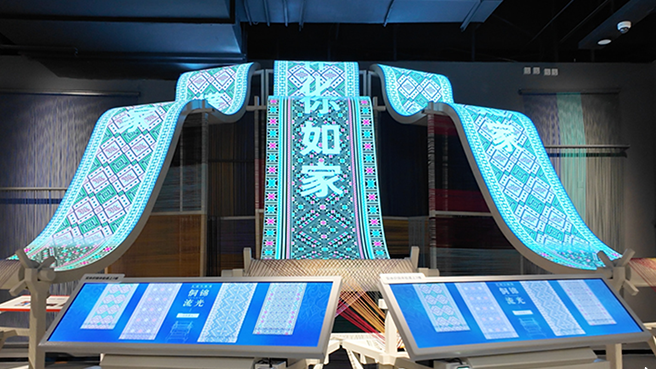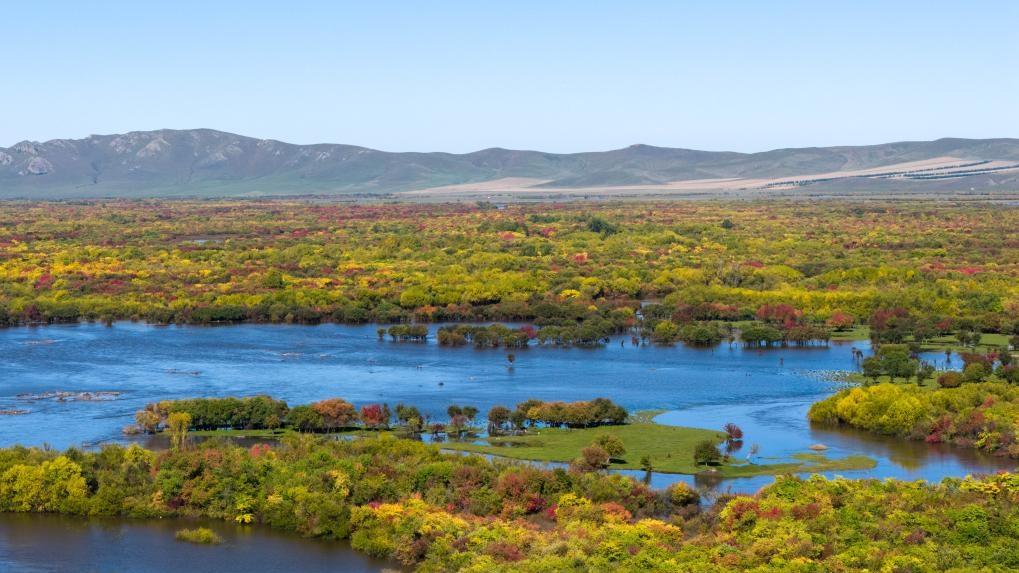Huge potential of the donkey industry in Pakistan
Cattle, buffalo, goats and sheep have traditionally dominated Pakistan's agriculture and livestock sector. These animals have formed the backbone of rural livelihoods for decades, serving as sources of food, employment and raw materials. Yet, a new chapter is unfolding — one that places an unlikely animal, the donkey, at the center of a transformative economic opportunity. Long overlooked, even ridiculed, donkeys are gaining recognition for their economic value in trade, innovation and rural development.
This shift was underscored at the China-Pakistan Donkey Industry Development Forum, held recently in Islamabad under the theme "Creating Opportunities Together, Winning the Future Together." Co-hosted by the China Chamber of Commerce in Pakistan and Sangyang Industrial (Beijing) Group, the forum brought together policymakers, scholars and business leaders to explore the immense untapped potential of this sector.
What was once an ignored, even taboo, industry is now being elevated to the level of strategic economic planning. Pakistan's government is finally recognizing what China has long known: donkey products represent a multi-billion-dollar market, and Pakistan, with its large donkey population, is uniquely positioned to benefit.
Why donkeys matter: China's surging demand
Globally, China stands as the single largest consumer of donkey products. With a population exceeding 1.4 billion and a growing middle class, the demand for donkey meat and related products has surged in recent years. In Chinese cuisine, donkey meat is considered a delicacy, often described as more tender and flavorful than beef. Its nutritional profile — rich in protein and iron, yet low in fat — makes it an increasingly popular choice among health-conscious consumers.
Beyond meat, donkey skin is highly sought after for producing ejiao, a traditional Chinese medicine believed to improve blood circulation, boost immunity and enhance vitality. Similarly, donkey fat, bones and other by-products are used in the pharmaceutical and cosmetic industries. According to industry estimates, China requires at least 5 million donkey hides annually, yet domestic supply falls drastically short.
This gap has opened opportunities for countries like Pakistan to step in. Pakistan holds a comparative advantage with one of the world's largest donkey populations, estimated at 5.7 million donkeys. Properly developed, this industry can channel billions of dollars in exports, simultaneously uplifting rural farmers and stabilizing the national economy.
From neglect to strategic priority
For decades, donkeys in Pakistan were valued only as beasts of burden, particularly in rural and underdeveloped regions. They were critical in transporting goods, water and agricultural produce, yet were dismissed in policy circles. Donkey meat was never consumed domestically due to cultural and religious sensitivities; thus, the animal's economic dimension was largely ignored.
This mindset is now changing. As part of its wider agricultural modernization agenda, the Pakistani government has begun giving due weightage to donkey farming. Senior officials, including those from the Ministry of National Food Security & Research, have stressed the donkey industry's need for standardization, scalability and industrialization. The issuance of clear export policies, regulations to curb illegal slaughter, and cooperation agreements with Chinese partners reflect a newfound seriousness.
In addition, initiatives such as the China-Pakistan Joint Laboratory for Donkey Industry Innovation, memorandums of understanding with veterinary universities, and collaborative breeding programs are setting the groundwork for a structured, sustainable industry.
Addressing concerns and misconceptions
The idea of exporting donkey meat and by-products is not without controversy in Pakistan. Given that donkey meat is taboo in local culture, some fear that such initiatives may lead to unethical practices or domestic infiltration of donkey meat into local markets.
However, government oversight and strict regulation can address these concerns. Already, the Ministry of National Food Security & Research has pledged to curb illegal slaughter and ensure all exports meet international standards. Furthermore, industry declarations signed at the forum commit Chinese investors to respect Pakistan's cultural and religious sensitivities.
In reality, the donkey industry is no different from other livestock industries, where products are raised for export markets that have distinct demands. Just as Pakistan exports beef, mutton and poultry to Gulf countries with varying halal requirements, donkey products can be tailored exclusively for Chinese consumers.
Strategic bilateral partnership
China's willingness to invest in Pakistan's donkey industry also reflects the broader trajectory of China-Pakistan Economic Cooperation. Agricultural collaboration is emerging as a new pillar of the China-Pakistan Economic Corridor, alongside infrastructure and energy.
By investing in donkey farming, China is not only satisfying domestic demand but also supporting Pakistan's rural economy. The establishment of joint laboratories, academic partnerships and business agreements indicates a long-term vision. This is not merely trade; it is technology transfer, capacity building and shared prosperity.
A transformative opportunity
In an era where Pakistan is struggling with foreign debt, declining reserves and rural poverty, the donkey industry offers a surprisingly powerful solution. What was once dismissed as irrelevant is now emerging as a strategic economic asset. With China's growing demand and Pakistan's large donkey population, the opportunity is ripe to turn this overlooked animal into a source of prosperity.
The recent Islamabad forum demonstrated not only the seriousness of both governments but also the shared vision of creating a sustainable, innovative and ethical industry. If pursued with the same vigor as poultry or dairy, the donkey sector could become a billion-dollar pillar of Pakistan's export economy.
The time has come for Pakistan to shed old taboos and embrace new opportunities. The donkey —humble, resilient and long ignored — may yet prove to be a game-changer for Pakistan's rural development and economic revival.
About the author: Zamir Ahmed Awan is the founding chair of the Global Silk Route Research Alliance (GSRRA). He is a sinologist and former diplomat. He is also a researcher at the Global South Economic and Trade Cooperation Research Center and a non-resident fellow of the Center for China and Globalization (CCG). (E-mail: awanzamir@yahoo.com).
Photos
Related Stories
- Pakistani PM arrives in Beijing for China's V-Day commemorations
- Pakistani scientist helps combat "banana cancer" in China
- Chinese FM holds strategic dialogue with Pakistani counterpart
- Chinese FM to visit Pakistan, hold 6th round of China-Pakistan Foreign Ministers' Strategic Dialogue
- Moody's upgrades Pakistan's credit rating on improved external, fiscal position
- China, Pakistan vow to strengthen security cooperation
- China's top diplomat meets Pakistani army chief
- Pakistan extends airspace ban on Indian flights
- Pakistan issues travel advisory for Iran, Iraq, Lebanon, Syria
- Pakistan, India agree to extend ceasefire until May 18: Pakistani FM
Copyright © 2025 People's Daily Online. All Rights Reserved.









